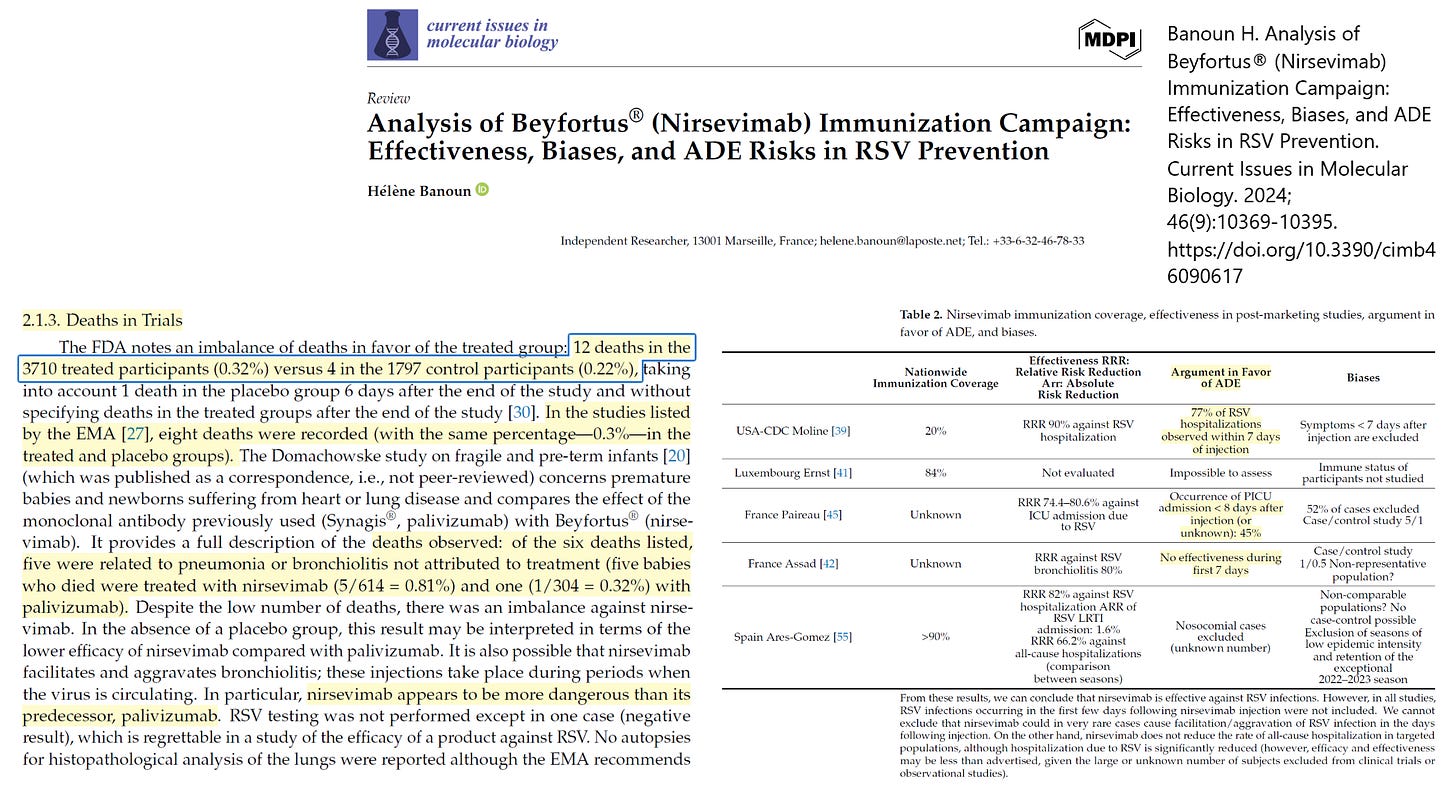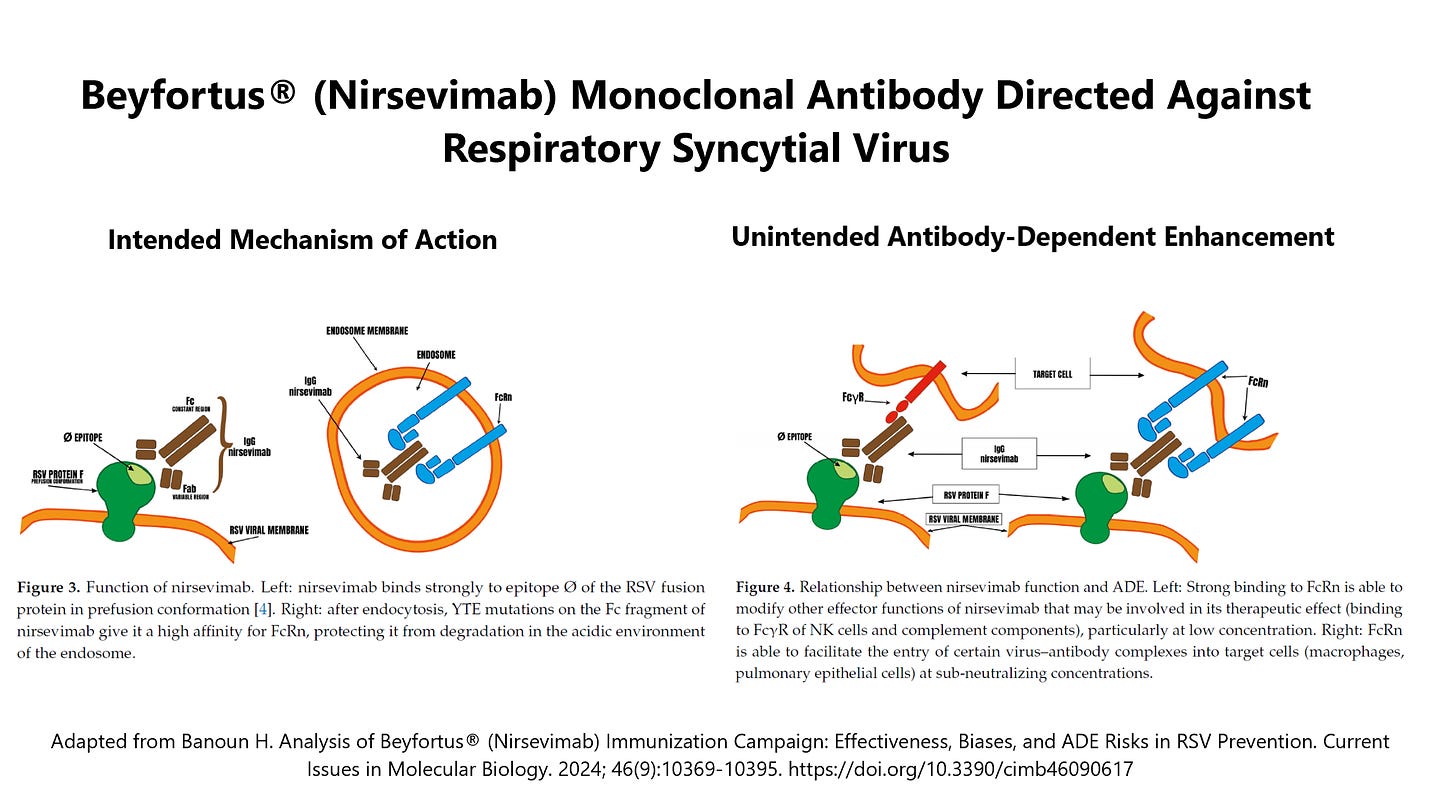BREAKING Manuscript: Banoun, Analysis of Beyfortus® (Nirsevimab) Immunization Campaign: Effectiveness, Biases, and ADE Risks in RSV Prevention
Acute RSV Infection and Death after Monoclonal Antibody Infusion Suggest Product Backfires in Some Babies Due to Antibody-Dependent Enhancement
By Peter A. McCullough, MD, MPH
Beginning in October, 2023, Beyfortus® (Nirsevimab) has been given routinely to all healthy newborns for the prevention of respiratory syncytial virus infection. High-tech synthetic antibodies have never been injected in a human on the first day of life before, so as one could expect, it is a brave new world for babies and the fate of this novel public health intervention.
Dr. Helene Banoun has summarized the clinical trials and the early post-marketing results with Beyfortus (nirsevimab) and the results are not good. Despite theoretical reductions in RSV calculated from the studies, the observed cases of invasive RSV infection and death nearly immediately after the shot are alarmingly imbalanced with worsened outcomes for babies given Beyfortus.

Banoun believes the antibody may make RSV infection worse because of antibody dependent enhancement. That means the antibody grabs the virus and human cells in turn can then attach to the end of the antibody and pull the virus into the cell making the infection worse.
Because half of babies get RSV in the first year of life and it is easily treated with nebulized medicine at home, nirsevimab for all appears to be a dangerous proposition. Not only does the antibody worsen the infection in some victims, but it may globally lead to resistant strains of RSV making it a much bigger public health problem in a few years. If a child is hospitalized with RSV, they can not only be managed oxygen, nebulizers, ribavirin, but also safer monoclonal antibodies (palivizumab) designed for acute use.
Banoun’s analysis suggest parents with healthy newborns should consider deferring on this new biotechnology and allowing the natural immune system to develop on its own.
Please subscribe to Courageous Discourse as a paying ($5 monthly) or founder member so we can continue to bring you the truth.
Peter A. McCullough, MD, MPH
President, McCullough Foundation






This is criminal and must stop! I do not understand the willful negligence and willingness for health professionals to continue down this path of blind allegiance to pharma.
Monoclonal antibody infusions should never be used as a prophylactic, because they cannot prevent the infection from happening. They can only react to the infection when it does happen. Unfortunately, they can react in bad ways, including either antibody dependent enhancement of the infection, or antibody dependent enhancement of the disease symptoms. Monoclonal antibodies should only be used as an emergency intervention when the infected person's innate cellular immune response that doesn't rely on antibodies has failed, and the symptoms were not adequately managed and have escalated to a life threating stage. With RSV infections, that scenario would be rare. https://rumble.com/v3as946-two-types-of-ade-explained-in-simple-terms.html